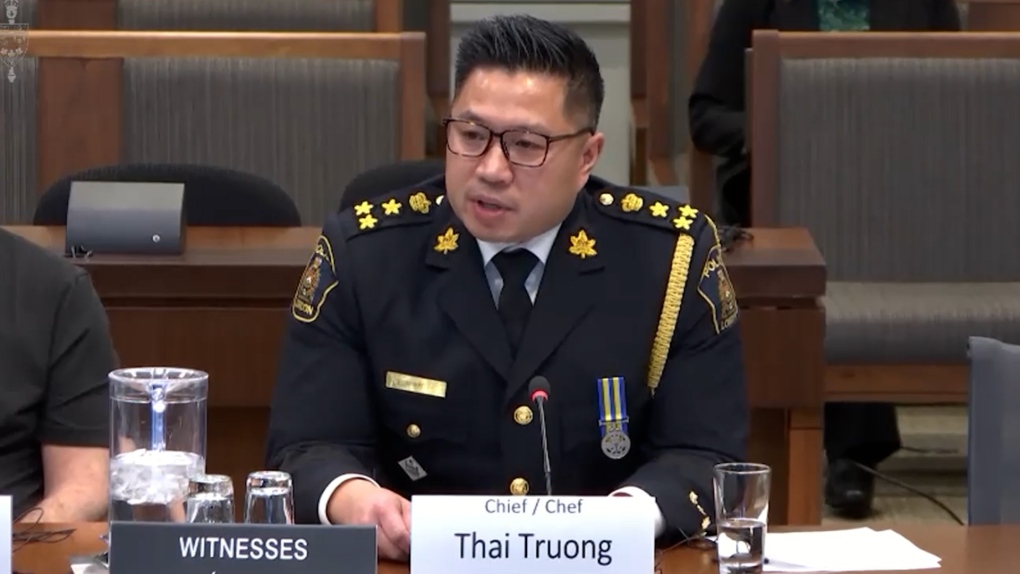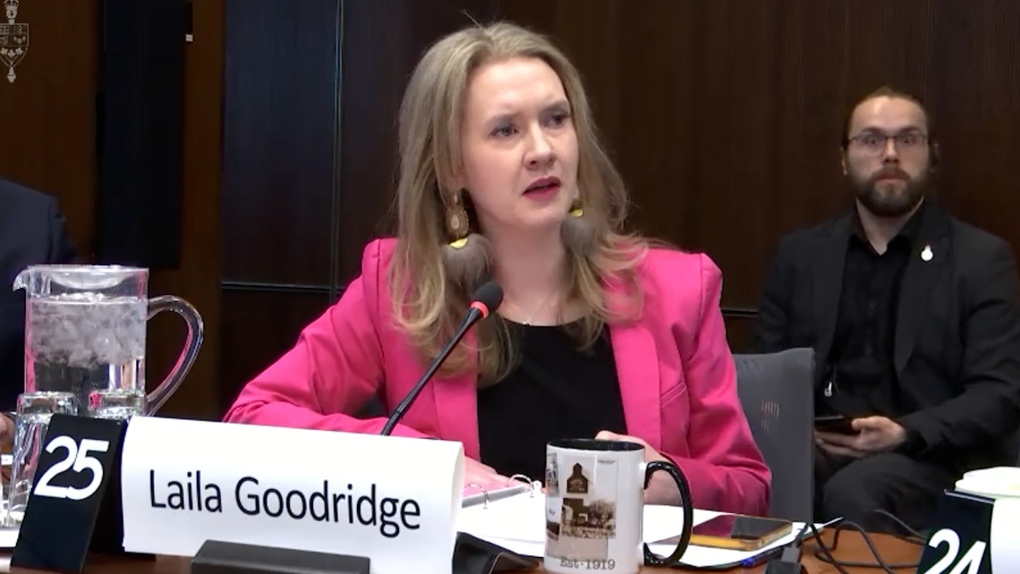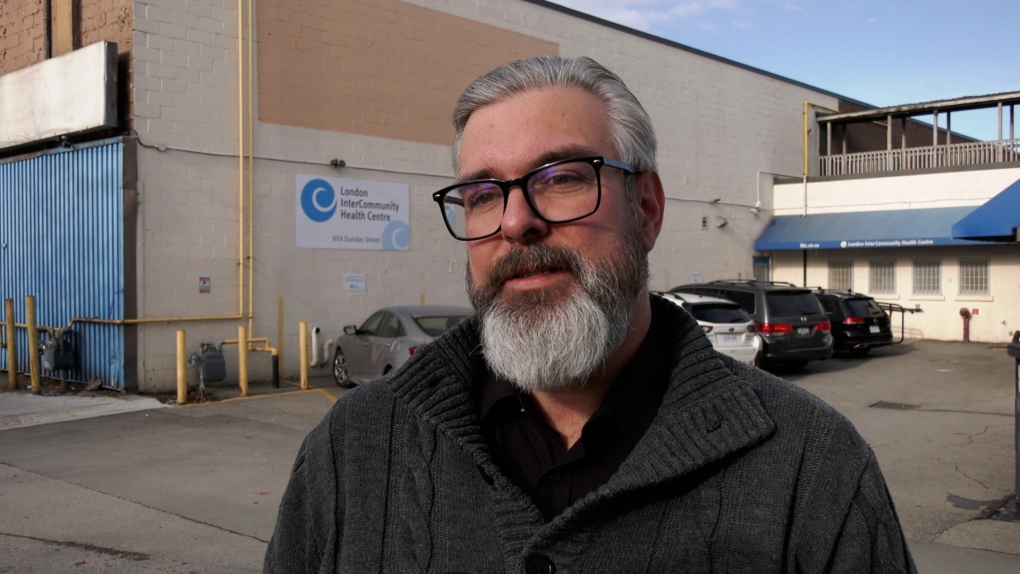'There are people using this as a politicization': Head of Intercommunity Health condemns politicians over Safe Supply criticisms
The head of the London clinic that piloted one of the controversial Safer Opioid Supply (SOS) programs says clients’ lives are being put at risk because some on Parliament Hill have chosen to politicize the program.
Scott Courtice, the executive director of the London Intercommunity Health Centre, made the comments Wednesday, a day after a parliamentary committee met to discuss the opioid epidemic.
“I’m concerned there are people using this as a politicization and a wedge to try to tell a story that helps their political advantage, and not really get at solving the crisis that we’re all very concerned about,” exclaimed Courtice.
On Tuesday, London Police Chief Thai Truong was one of several witnesses and experts to testify at the Parliamentary Standing Committee on Health. He was peppered with questions about the challenges of policing the city’s drug problem.
 London Police Chief Thai Truong testifies at the Parliamentary Standing Committee on Health. (Source: ourcommons.ca)
London Police Chief Thai Truong testifies at the Parliamentary Standing Committee on Health. (Source: ourcommons.ca)
“Does that concern you, that vulnerable people are being made more vulnerable by the use of government funded drugs?” asked Conservative MP Laila Goodridge.
Chief Truong responded, “Our concern is the victimization of all individuals in the community. Vulnerable and marginalized people are extremely at risk.”
The chief told the committee police need help in dealing with drugs being diverted from the program to the streets.
“I’m not here to criticize the safe supply program, but to address the serious challenges associated with its diversion. We need innovation to mitigate risks. We need robust enforcement to hold traffickers accountable,” said Truong.
 Conservative MP Laila Goodridge at the Parliamentary Standing Committee on Health. (Source: ourcommons.ca)
Conservative MP Laila Goodridge at the Parliamentary Standing Committee on Health. (Source: ourcommons.ca)
Here’s how the SOS program works at the Intercommunity Health Centre, as explained by Courtice: The centre has about 200 clients it describes as high risk of death. They’re prescribed an alternate to the toxic drug supply they would otherwise access on the streets. Those clients pick up that prescription every day. Courtice estimates diversion from his centre’s program has happened about a dozen times in the last few years. He says the increase in diversion coincides with other prescribers coming onstream in 2023.
“The large increase that police are seeing in diversion, the timing is about when we had the increase in the number of prescribers in our community that were providing Safer Supply. Our program, we have a long history and experience of providing, preventing diversion. So, it’s rare in our program, and we take it seriously,” said Courtice.
Federal funding for London’s SOS program comes to an end at the end of March. Courtice says it means six staff dedicated to providing wraparound supports for high-risk addicts will be reassigned.
 Scott Courtice, executive director of the London Intercommunity Health Centre, speaks to CTV News. (Bryan Bicknell/CTV News London)
Scott Courtice, executive director of the London Intercommunity Health Centre, speaks to CTV News. (Bryan Bicknell/CTV News London)
CTVNews.ca Top Stories

Mark Carney reaches out to dozens of Liberal MPs ahead of potential leadership campaign
Mark Carney, the former Bank of Canada and Bank of England governor, is actively considering running in a potential Liberal party leadership race should Justin Trudeau resign, sources tell CTV News.
'I gave them a call, they didn't pick up': Canadian furniture store appears to have gone out of business
Canadian furniture company Wazo Furniture, which has locations in Toronto and Montreal, appears to have gone out of business. CTV News Toronto has been hearing from customers who were shocked to find out after paying in advance for orders over the past few months.
Woman critically injured in explosive Ottawa crash caught on camera
Dashcam footage sent to CTV News shows a vehicle travelling at a high rate of speed in the wrong direction before striking and damaging a hydro pole.
Much of Canada is under a weather alert this weekend: here's what to know
From snow, to high winds, to extreme cold, much of Canada is under a severe weather alert this weekend. Here's what to expect in your region.
Man injured in Longueuil home invasion in the presence of a child
A Longueuil resident was injured during a home invasion early Saturday morning in the presence of a child.
Jeff Baena, writer, director and husband of Aubrey Plaza, dead at 47
Jeff Baena, a writer and director whose credits include 'Life After Beth' and 'The Little Hours,' has died, according to the Los Angeles County Medical Examiner.
Hundreds of animals killed in Dallas shopping centre fire
A fire that broke out at a shopping center in Dallas on Friday morning killed more than 500 animals, most of which were small birds, authorities said.
MP Peter Fragiskatos calls on Trudeau to resign
Prime Minister Justin Trudeau has lost the confidence of another prominent Liberal MP.
Fugitive U.S. rioter seeks asylum in Whistler amid warnings of more to come
An American citizen convicted of participating in the Jan. 6, 2021, riot on Capitol Hill and dodging jail time in Whistler may just be the start of an asylum-seeking rush, according to a prominent legal expert.


































